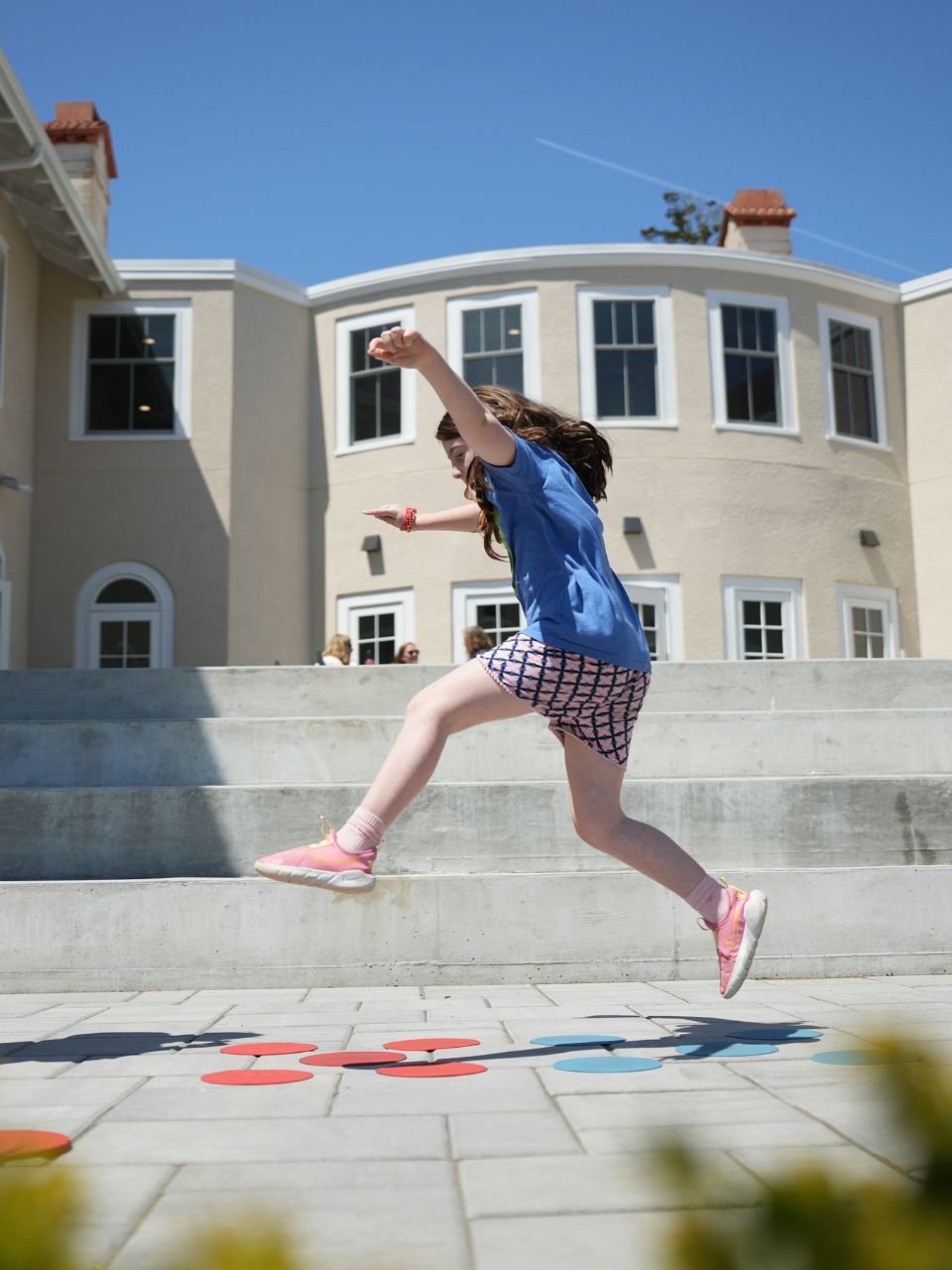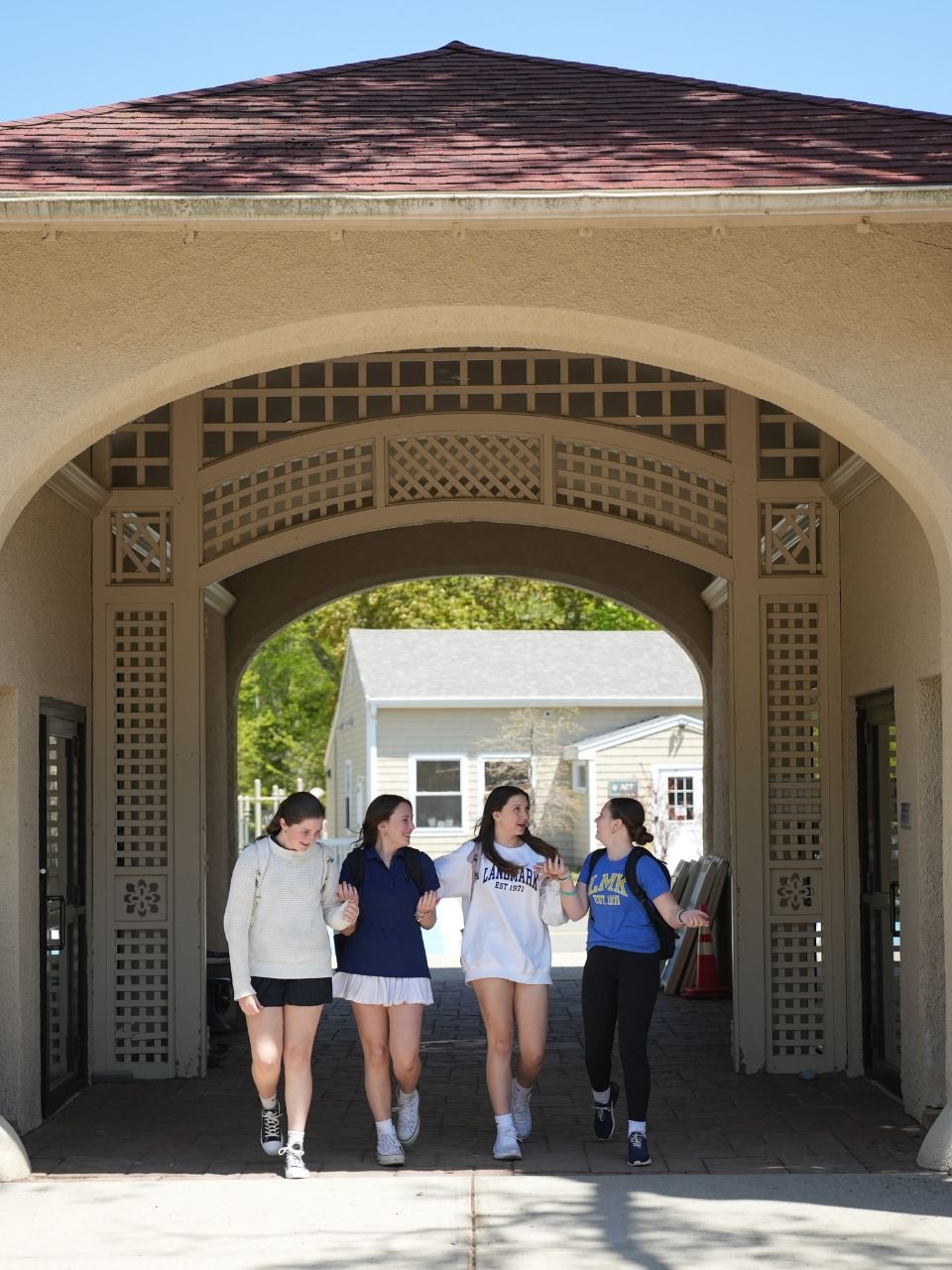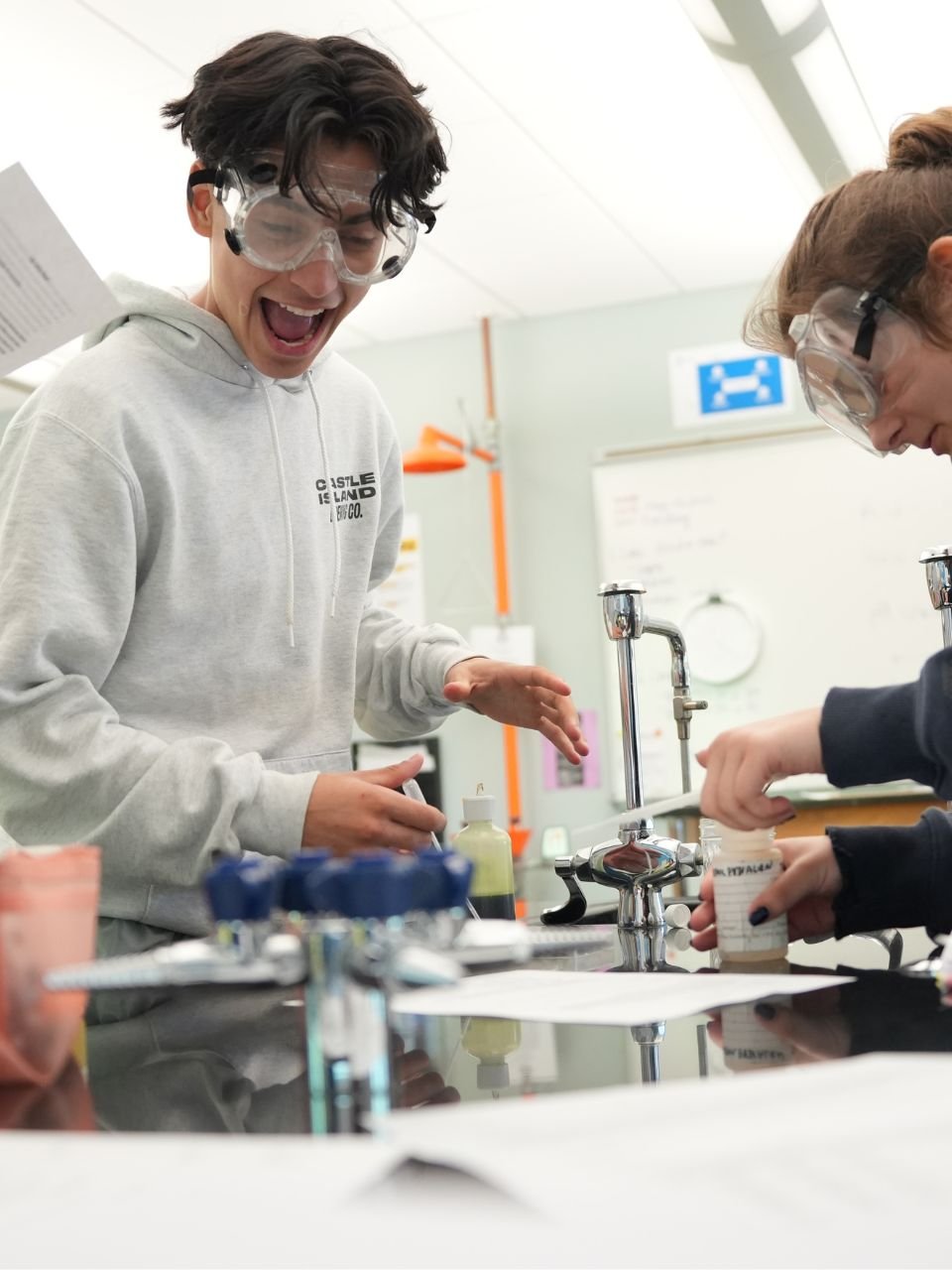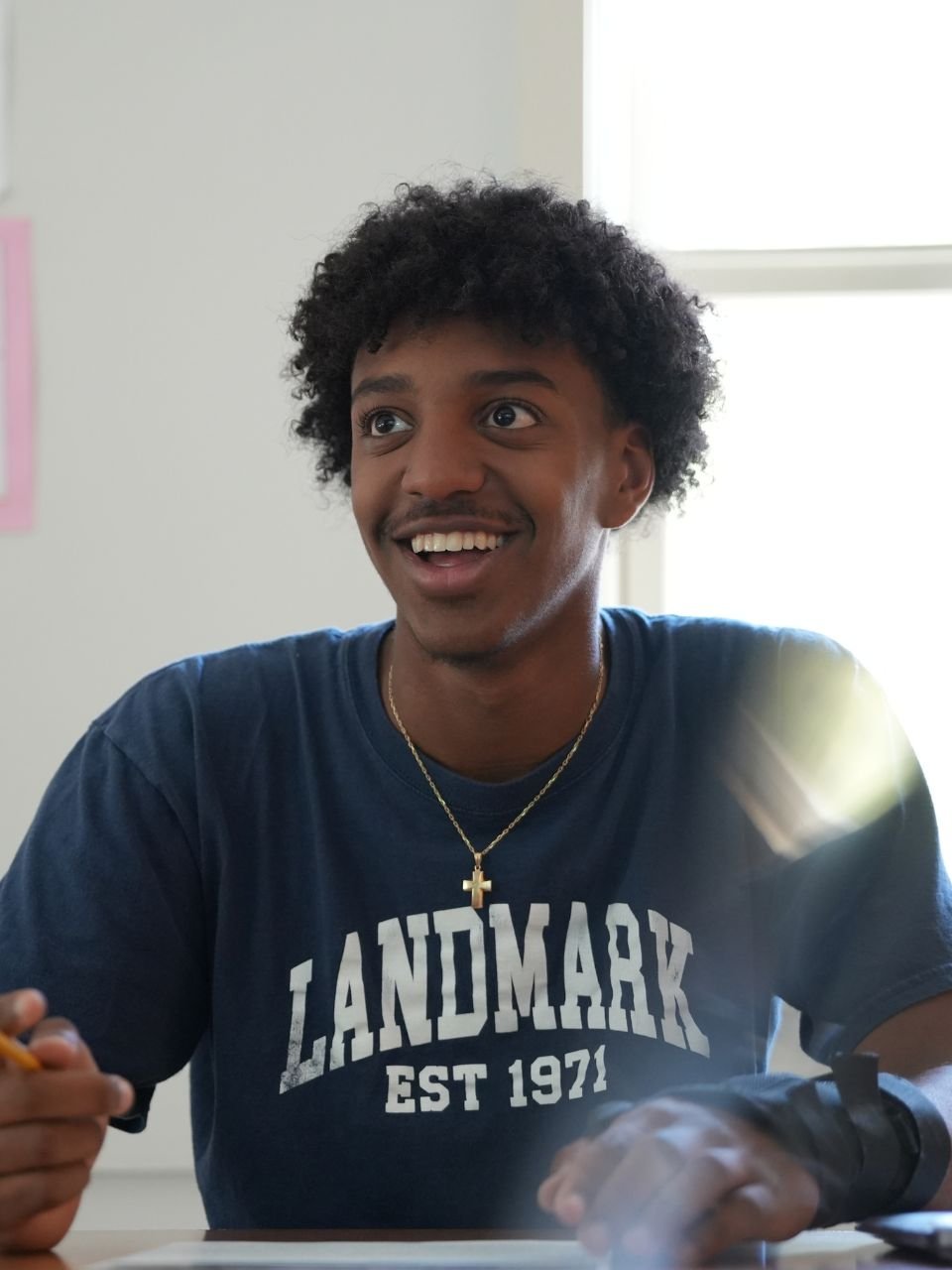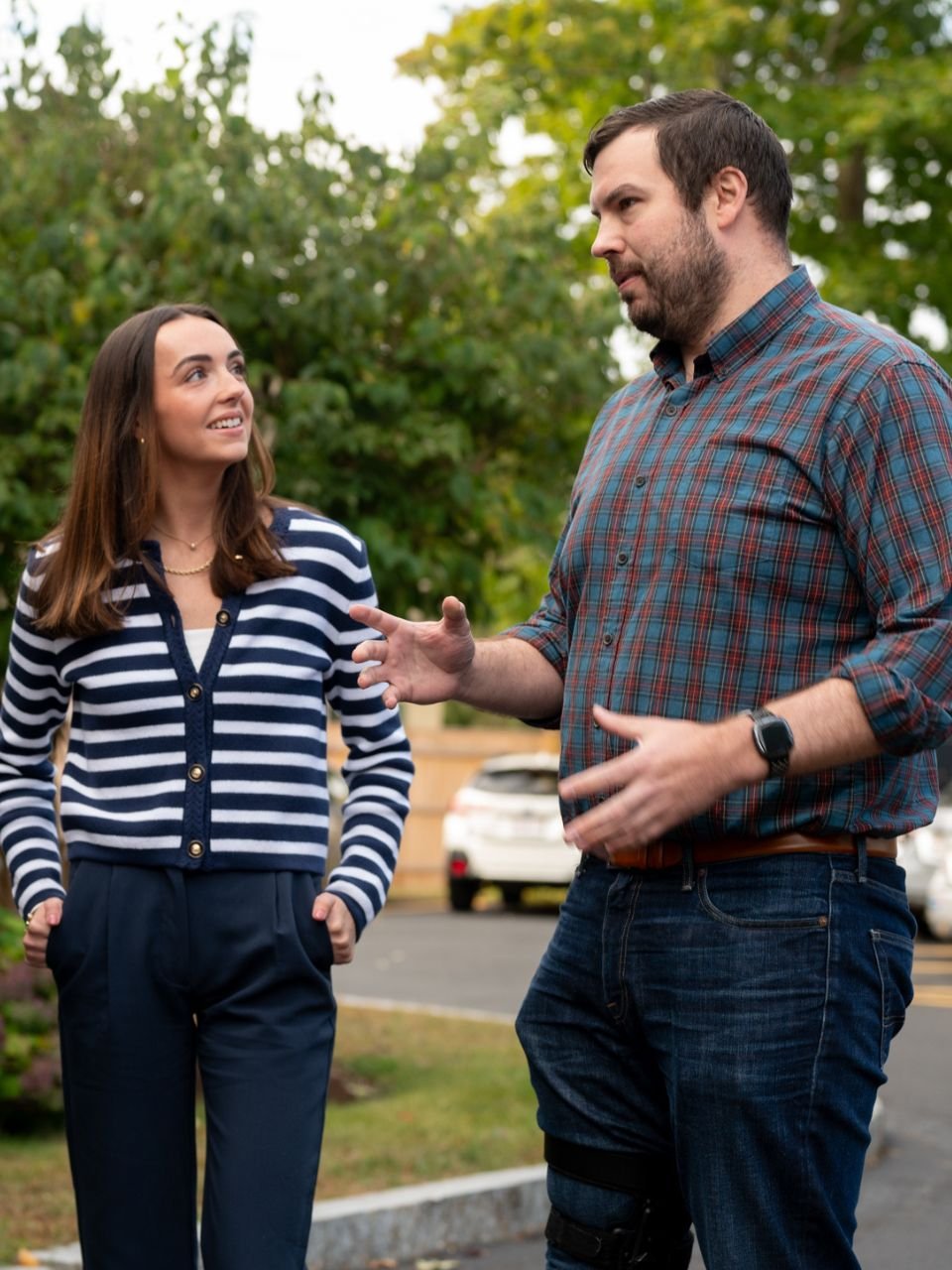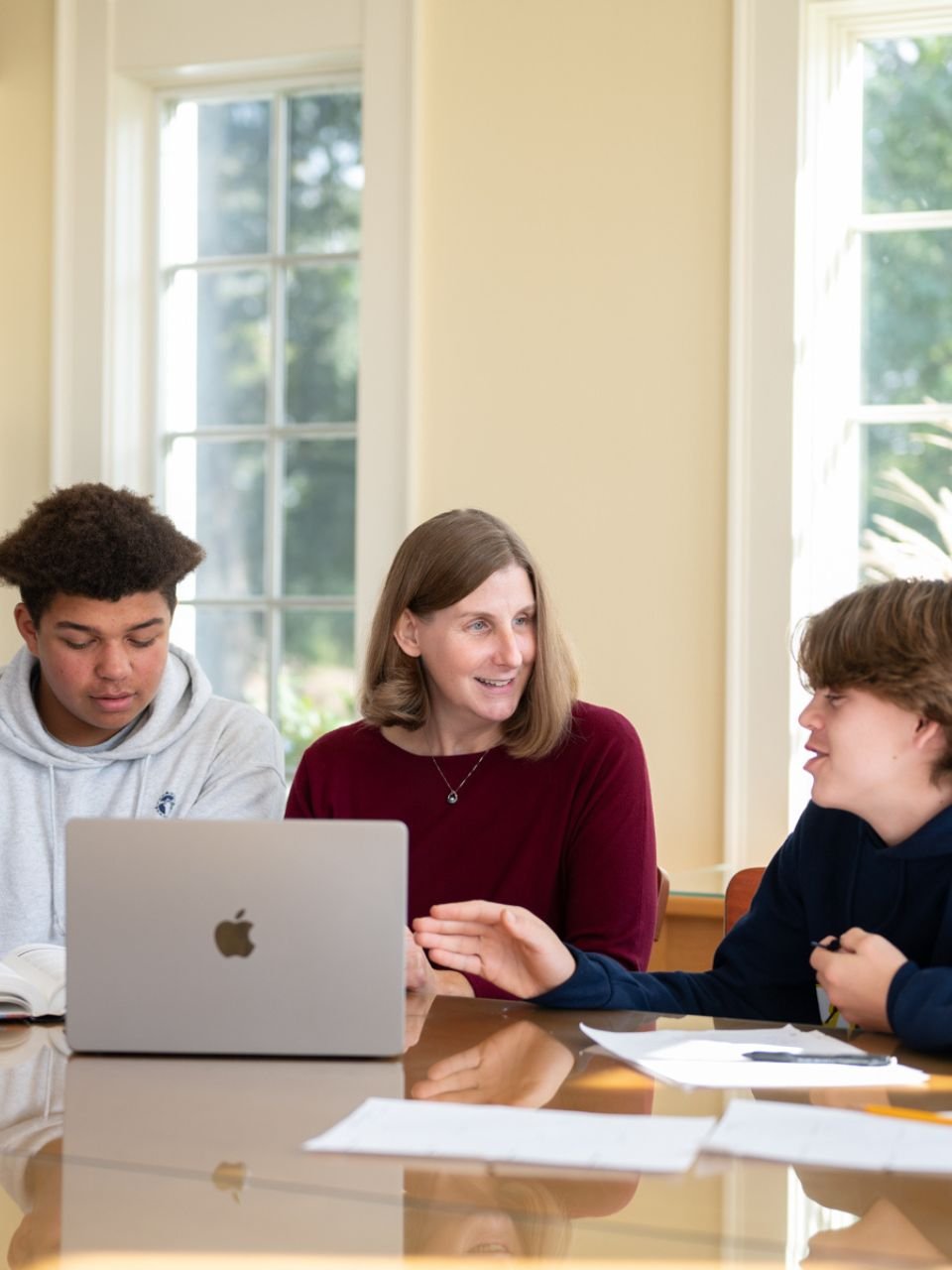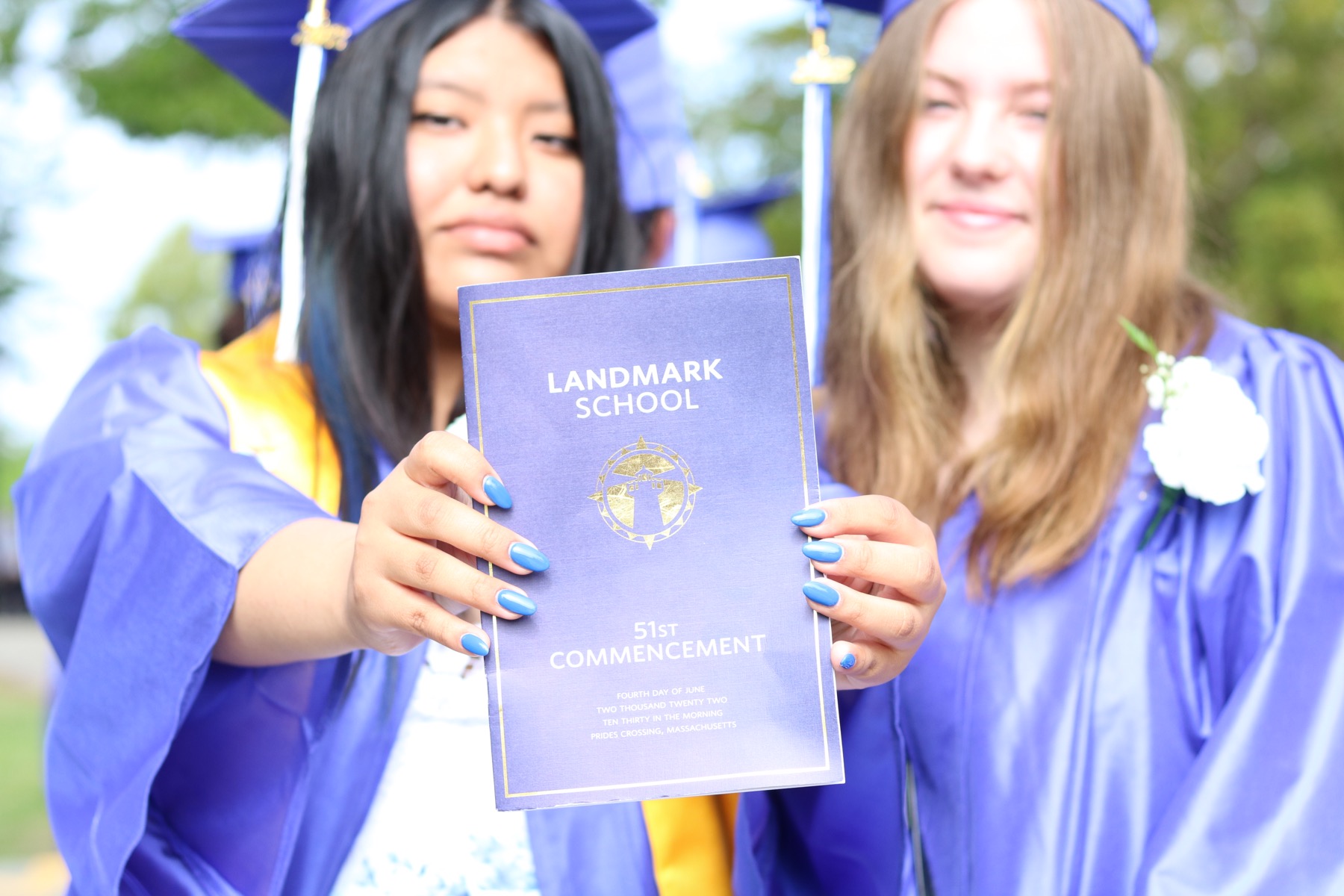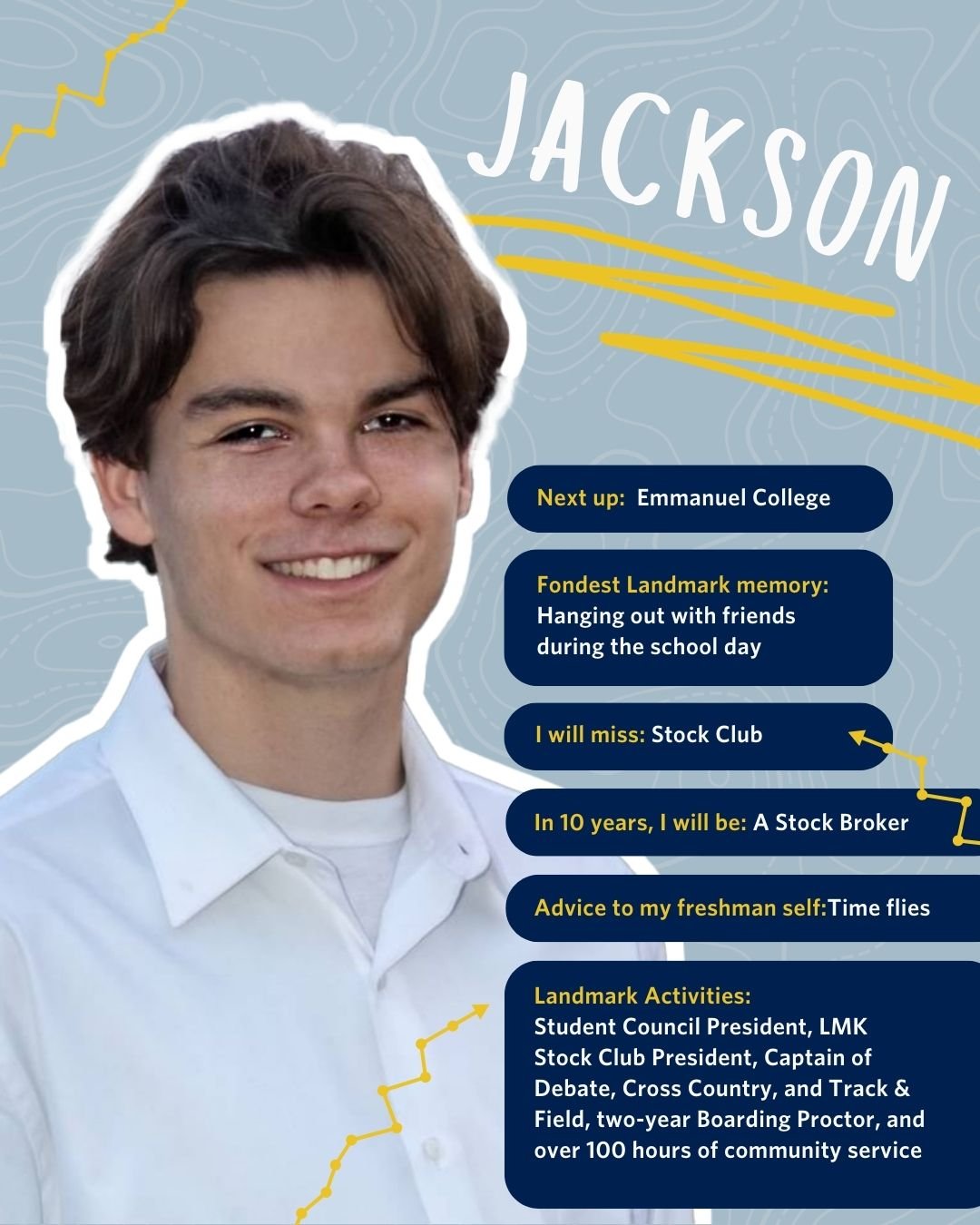- Our School
- Our Advantage
- Admission
- Elementary•Middle School
- High School
- Summer
- Giving
- Parent Resources
- For Educators
- Alumni
College and Career Counseling
College and Career Counseling offers a comprehensive program from ninth grade through senior year preparing students for a variety of post-secondary experiences. By graduation, students are equipped with the knowledge, skills, and confidence to succeed.
Preparing Students For THEIR Future
Landmark prides itself on its college-preparatory program, where all students have the option to continue on to higher education.
While 94% of our students choose college, we support each student’s unique path. Our goal is to help them build a future that aligns with their passions and strengths.
Students explore a wide range of post-secondary offerings—from college to career paths and everything in between. No matter the destination, we equip students with the confidence, skills, and knowledge to thrive.
Recent Colleges Attended
Alfred University
American University
Anna Maria College
Bard College
Belmont University
Berklee College of Music
Bridgewater State University
Brigham Young University
Bryant University
Bunker Hill Community College
Champlain College
Chapman University
Clark University
Coastal Carolina University
Colby-Sawyer College
College of Charleston
College of the Holy Cross
Colorado College
Curry College
Dean College
Drexel University
Eastern Connecticut State University
Eckerd College
Elon University
Embry Riddle Aeronautical University
Emmanuel College
Endicott College
Fairfield University
Fitchburg State University
High Point University
Hudson Valley Community College
Hunter College
Johnson and Wales University
Keene State College
Lasell University
Le Moyne College
Loyola University Chicago
Loyola University Maryland
Lynn University
Manchester Community College
Marist College
Massachusetts College of Art and Design
McDaniel College
Merrimack College
Messiah University
Michigan State University
Middlesex Community College
Mitchell College
Montana State University
Montserrat College of Art
Mount Holyoke College
Nazareth University
New England Institute of Technology
New York University
Nichols Collge
North Bennett Street School
North Carolina State University
North Shore Community College
Northeastern University
Northern Essex Community College
Norwich University
Norwich University of the Arts (UK)
Oregon State University - Cascades
Oxford Brookes University
Parsons School of Design, The New School
Pennsylvania College of Technology
Peterson School
Pitzer College
Plymouth State University
Pratt Institute
Providence College
Regis College
Rensselaer Polytechnic Institute
Rhode Island School of Design
Rochester Institute of Technology
Roger Williams University
Rollins College
Salve Regina University
Santa Barbara City College
Santa Clara University
Savannah College of Art and Design
Skidmore College
Southern Maine Community College
St. Joseph’s College of Maine
St. Joseph's University
St. Lawrence University
St. Michael’s College
Stonehill College
SUNY Cobleskill
Swarthmore College
Syracuse University
Trinity College
Tulane University
University of Alabama
University of Arizona
University of Colorado
University of Connecticut
University of Denver
University of Hartford
University of Maine - Machias
University of Maine Farmington
University of Maryland
University of Massachusetts Amherst
University of Massachusetts Lowell
University of Miami
University of New England
University of New Hampshire
University of Oregon
University of Tennessee
University of Vermont
University of Washington
University of Wisconsin Oshkosh
Vermont Technical College
Wentworth Institute of Technology
Westfield State University
Worcester Polytechnic Institute

Alumni Spotlights
Landmark Alumni are doing amazing things! Check out some of our Class of 2025 Spotlights.
College Rep Visits
Representatives from colleges come to Landmark High School's campus to meet with students and share about their programs. This gives students an insight into interested colleges before doing a campus visit.
Post-Secondary Fair
Meet representatives from college and university admissions and student support services, gap year programs, technical schools, and other non-traditional options.
2026 Date Coming Soon
Career Day
Landmark students get to hear from alumni and other professionals to learn and ask questions about various careers.
Resources
Check out our College and Career Resources for more information about Landmark Transition Planning, how to get ready for college, and links to helpful information.
For more information about Landmark’s College and Career Counseling, please contact Kelly Scimone.





